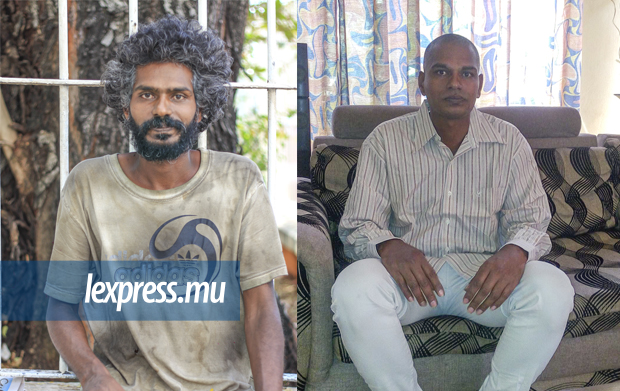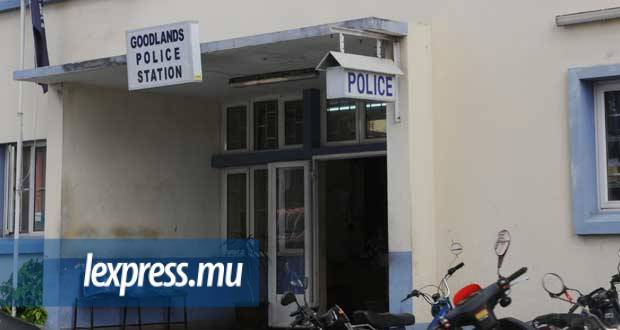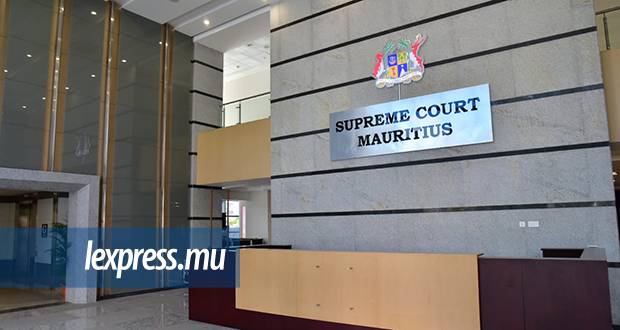Publicité
The MMM on Electoral reform
Par
Partager cet article
The MMM on Electoral reform

"The Electors [voters] who are on a different side in party politics from the local majority are unrepresented... [This system] is diametrically opposed to the first principle of democracy, representation in proportion to numbers."
John Stuart Mill, Considerations on Representative Government (1861)
The debate over the need for, and the direction of, electoral reform in Mauritius has once again taken centre stage in the political debate. Historically, the MMM has been at the forefront of the campaign for a more representative democratic system. Yet, one of the fallouts of the ill-fated Labour Party-MMM alliance of 2014 has been to obfuscate MMM’s contribution to strengthening our democratic fabric over the years and the party’s stand on electoral reform.
I wrote the unpublished paper below in April 2014, as a draft response to the then government’s White paper on electoral reform, which remains the latest official and detailed proposal for changes to our electoral system. The paper is relevant to the present debate in that it recalls the underlying principles and specific formulations of the MMM’s stand on electoral reform, over the 1986-2014 period. It does not however purport to reflect, in every particular, the party’s present stand.
POSITION PAPER OF THE MMM ON THE 2014 PROPOSALS FOR ELECTORAL REFORM
- Introduction
Created in 1969, the MMM was not party to the adoption of the present electoral system but has always been at the forefront of efforts to strengthen the democratic foundations of our political system. It is worthy of recall that in 1982, the MMM-led government introduced an amendment to the Constitution to entrench the holding, within prescribed periods, of legislative general and by-elections. Moreover, it was at the initiative of a MSM-MMM government in 1992 that the country became a republic.
In the face of the gross disproportion between number of votes garnered at elections by parties and the ensuing profile of the National Assembly in terms of parliamentary representation, the MMM has over the last 30 years or so been constantly campaigning for the introduction of proportionality within the electoral system in order to shore up the foundations of representative democracy in Mauritius.
The pros and cons of Proportional Representation (PR) have been much debated since the 1950s and it is noteworthy that the present electoral system resting upon twenty one constituencies electing 62 MPs according to the First Past The Post (FPTP) formula dates back nearly fifty years to the Banwell report of 1966. Yet, the notion of PR is not altogether absent in as much as the Best Loser System (BLS), adopted that same year, introduces a modicum of proportionality, albeit premised on communal belonging.
Ever since its creation, the MMM has waged a constant struggle against communalism and, in that spirit, the MMM-led government of 1982 rejected the holding of a census to determine communal appurtenance of individual Mauritians and, as a result, the BLS system has since been premised on the last such census dating back to 1972.
The ruling of the United Nations Human Rights Committee of 2012 underlined the fact that the Best Loser system, in its present form, is no longer tenable and brought to a head the public debate relating to electoral reform.
On 24th March 2014, the Prime Minister’s Office released a White Paper entitled Modernising the Electoral System, for the first time formulating specific reform proposals. These proposals offer the unprecedented historical opportunity of forging a consensus between the major parties in Parliament and between Government and Opposition. The present document allows the MMM to recall its past efforts in favour of electoral reform, to re-state its position and to specifically address issues raised by the White Paper.
- The 1986 Proposal for a mixed FPTP/PR system
The 1982 elections, for the first time, strikingly demonstrated the injustice of the Mauritian electoral system with the Labour Party and its leader Sir Seewoosagur Ramgoolam being denied any seat in Parliament, despite garnering over 30% of the popular vote. A year later, it was the turn of the MMM to bear the consequences of such an inequitable system when its 46% of the vote translated into a mere 19 MPs.
The MMM thereafter reflected upon the ways and means of promoting a more representative parliamentary democracy and, in 1986, proposed an 80-member Parliament consisting of 42 MPs (2 MPs for each of the existing 21 constituencies) elected according to the FPTP system; 30 MPs allotted on a proportional basis for parties obtaining at least 10% of the popular vote; and 8 Best Losers.
- The commitment to electoral reform
The general election of 1987 and especially that of 1995 (no seats for the MSM and Sir Anerood Jugnauth despite a vote share corresponding to some 20% of the electorate) testified to the perversity of the FPTP system. The MSM-MMM Alliance of 2000 agreed on the need to inject a measure of PR to address the manifest disconnect between the will of the electorate and ensuing party representation in Parliament:
“L’Alliance MSM-MMM se propose de préserver le système actuel de 62 élus pour 21 circonscriptions et de 8 Best Losers mais d’y adjoindre un nombre additionnel de députés désignés sur une base proportionnelle.” (Anou Redresse Nou Pays, electoral manisfesto of the MSM-MMM Alliance, 2000).
- The Sachs Commision
Accordingly, soon after assuming office in 2000, the new government set up the Sachs Commission with a mandate, inter alia, to “make proposals regarding representation in Parliament on a proportional basis but within the existing electoral system”. The Commission identified the key criteria for formulating a proposal as consisting of “fairness, stability, simplicity, familiarity and impact on national harmony and social progress” and, in that regard, recommended a compensatory Proportional Representation system that has since become known as the Sachs PR Model C.
The Sachs Committee proposed that in addition to the 62 members of Parliament elected on a constituency basis as at present, 30 members be designated according to the compensatory and proportional formula on the basis of lists published in advance of elections and possibly including a restricted number of names of persons standing in constituencies. The Sachs Committee recommended a qualifying threshold of 10% for any party to enter Parliament through the PR mechanism.
As for the Best Loser System, the Commission significantly opined “we do not regard it as central to the introduction of PR that the BLS be either retained or abolished. The case for introducing a measure of PR is overwhelming and should not be jeopardised by controversy ovr BLS”. It went on to state that “It is the opinion of the Commission that the BLS has outlived its original purpose …At the same time the Commission believes that the symbolical reassurance given by the BLS is something which should not be ignored” and accordingly recommended “subsuming the BLS into the new constitutional arrangement while divesting it of its unacceptable features...”
- The Select Committee Report of 2004
Following the Sachs Commission Report, and at the instigation of the MMM-led government, a Select Committee of Parliament was set up, chaired by Ivan Collendavelloo MP, essentially to address the modalities for the implementation of the Sachs Commission‘s recommendations. The Select Committee adopted the compensatory formula of Sachs (PR Model C) and spelt out the practicalities both of the party list and of the compensatory mechanism for allotment of PR seats.
- Rodrigues and Proportional Representation
The MSM-MMM government, during its mandate, also introduced a new framework for regional autonomy in Rodrigues. The newly set up Rodrigues Regional Assembly was elected according to a combined system of FPTP (12 constituency-based seats) and PR (4 seats from a party list) with a special proviso so that the party obtaining a majority of votes is, in any event, guaranteed a majority of elected members.
- A Bill for Electoral Reform
On 14th March 2005, the MSM-MMM government circulated a Draft Constitution Amendment Bill before the House that provided for the number of additional (Best Loser) seats to be increased from 8 to 18, of which the first 14 would be designated proportionately to votes polled by parties, provided they crossed the threshold of 10% of votes cast. The remaining 4 would then be allotted, irrespective of party belonging, for the better representation of communities. All 18 additional members would be drawn from amongst the unreturned candidates under the FPTP system and their designation would be subject to a minimum of 7 women joining Parliament. In the event, Parliament was dissolved before the Bill came up for debate.
- Gender representation in Parliament
The MMM demonstrated its commitment to more equitable gender representation in Parliament when, in the course of debates on the Local Government Bill and related constitutional amendment in November 2011, it tabled a motion of amendment for the provision of one-third candidates to be of either sex to be extended to general elections.
- The present stand of the MMM on Electoral Reform
The MMM proposal for electoral reform seeks to preserve the guarantee of stability offered by the present system but to address its shortcomings having regard to representativeness and fairness by supplementing the FPTP with a measure of proportionality in the composition of an elected Parliament through the compensatory PR mechanism.
The MMM, drawing upon the Sachs report and the recommendations of the Select Committee of Parliament, favours an electoral system that would elect a 90-member Parliament as follows:
- 62 MPs elected as at present on the basis of the existing constituencies and the FPTP mechanism
- 20 MPs drawn from a first party list of a maximum of 20 names in order of precedence, submitted by registered political parties to the Electoral Commissioner and made public prior to election day.
- 8 MPs, in lieu of the existing 8 Best Losers, drawn (i) from any unreturned candidates under FPTP or the first PR party list, or (ii) from a second party list with candidates’ names in alphabetical order, again submitted by registered parties to the Electoral Commissioner and made public before elections are held.
- It is proposed that all 28 additional parliamentary seats be allotted as per the Sachs PR model C, that is the compensatory formula rather than the ‘parallel formula’ or the ‘wasted votes approach’ in order to obtain a parliament the composition of which is relatively closer to the actual percentage of votes obtained by each party.
To that end, a voter will be called upon to vote not only for his three preferred constituency-based candidates but also for a party of his choice, as expressed on a separate second ballot paper.
In order not to encourage a multiplicity of communal or extremist parties, only parties crossing the threshold of 7.5% of votes cast nationally would be entitled to the 28 PR seats as described above.
To promote fairer gender representation, the MMM believes that at least one-third of constituency candidates fielded should be of either sex whereas candidates on the PR list(s) should comprise the same number of men and women, with alternate ranking in the first PR list. The MMM further suggests that a minimum number of dedicated slots on the PR lists be reserved for physically handicapped candidates.
While the MMM is very much aware of the unequal size of the electorate in different constituencies, it believes that to attempt to address this complex and sensitive issue at the very same time as that of the mode of election and under-representation of Opposition parties would delay and very likely jeopardise the electoral reform presently under consideration. Likewise, the MMM has insisted on the urgent need for a regulatory framework in regard to the funding of political parties. However, it stands to reason that this is a very important matter in its own right, to be addressed separately from that of proportional representation.
The MMM favours a step-by-step approach to the revision and consolidation of the functioning of our parliamentary democracy, which can ensure the broadest possible support for reform within public opinion. The Party considers it of critical importance to seize the historical opportunity presented by the apparent consensus on electoral reform among the main political parties in Parliament.
- The 2014 White Paper
The MMM accordingly welcomes the recently published White Paper entitled Modernising the Electoral System and is pleased to submit hereunder its stand on the White Paper’s proposals for refrom:
- The MMM reiterates its stand in favour of the retention of 20 three-member constituencies on the island of Mauritius and a two-member constituency in Rodrigues electing Members of Parliament on the basis of the FPTP system as at present.
(ii) It is moreover agreed that for the purposes of ensuring the early presentation before Parliament of a Bill on electoral reform, constituency size and boundaries should not be addressed at one and the same time and that the status quo in that respect should, for the time being, be preserved.
(iii) The Best Loser System as it now stands cannot be maintained in view of the 2012 ruling of the United Nations Human Rights committee. The MMM totally rejects any suggestion of a new census to determine communal belonging and holds that the Best Loser System, after serving the interests of national unity in the past, has now served its purpose. Moreover, the very notion that the basic democratic right to stand for election should he subjected to the imperative of declaring one’s communal identity is repugnant to modern Mauritius. Along with Sachs, it is considered that “The case for introducing a measure of PR is overwhelming and should not be jeopardised by controversy over BLS” but that the ‘symbolical reassurance’ offered by the BLS should not be overlooked. The MMM has proposed a second party list for election of 8 additional members after proclamation of other elected members to assuage all fears and address all apprehensions as a way of “subsuming the BLS into the new constitutional arrangement while divesting it of its unacceptable features...” and is open to discussion as to the exact number of MPs to be designated in this manner.
(iv) While the White Paper proposes “at least 16 additional PR seats to complement the 62 FPTP MPs”, the MMM has suggested that 28 additional MPs returned on the basis of proportionality would be more effective in correcting the imbalance created by the FPTP mode. It is considered that agreement on the number of PR seats is within reach.
(v) Although the eligibility threshold of 10% to obtain PR seats proposed by the White Paper is higher than the preferred threshold of 7.5% put forward by the MMM, it does not consider that the issue should be made into an obstacle to electoral reform.
(vi) While the MMM would favour the compensatory formula (Sachs PR Model C) for the allotment of PR Seats, it takes note of the White Paper’s proposal of the ‘wasted votes’ method of calculating PR seat entitlement and is open to discussion on the issue.
(vii) Whereas the White Paper does not take a precise stand on the issue of the nature of party lists, the MMM has proposed (a) a first closed party list with candidates’ names in order of precedence for designation of 20 MPs; and (b) a second party list of candidates’ names by alphabetical order, from which 8 MPs would be designated by the Electoral Commissioner as per allotment determined by the Electoral Commissioner, upon the suggestion of leaders of relevant registered parties. In the interests of democratic transparency, both lists would be submitted to the Electoral Commissioner and made public well before polling day.
(viii) The MMM is fully agreeable with the White Paper’s suggestion that crossing of the floor by an MP elected on the PR mode should be proscribed and the filling of any vacancy among PR MPs to be effected on the basis of the original list(s).
(ix) The White Paper’s proposal that (a) at least one third of candidates put up by parties for the FPTP constituency-based elections from either gender, and (b) there be at least one person of a different gender out of every 3 sequential candidates on the PR list, is acceptable, given the MMM’s stated position. The MMM had in actual fact earlier proposed that the principle of gender parity be applied to the PR list but is willing to agree to the White Paper’s suggestion on this score.
(x) The MMM has no objection to the White Paper’s recommendation that the option of filing double candidacies for FPTP and PR be left to individual parties.
- The way forward
Nearly fifty years after the adoption of our electoral system, that it be revised in the light of experience and to respond to societal evolution, is not only legitimate but desirable from the perspective of historical progress. Indeed, to constantly seek to extend the frontiers of democracy is the hallmark of progressive politics.
The time is now right to redefine, in the Mauritian context, the democratic equilibrium between governability and representativeness. Hence the proposal to address the perverse effects of the FPTP mode of election by introducing a measure of proportionality in parliamentary representation. Moreover, the envisaged electoral reform presents the nation with the opportunity to tackle both the vexed issue of the Best Loser System and the challenge of gender equity in parliamentary representation.
The mixed system put forward by the MMM has the advantage of being easily understandable and implementable. The MMM is nonetheless open to discussions to reach a common proposal across the political divide in the near future.
Never in the history of post-independence Mauritius has there been such a broad political consensus as to the need for a revision of the country’s electoral system but also never has there been so much common ground as to the nature of the changes required to be brought.
Indeed, in the light of the White Paper, there would appear to be a convergence of views between the Labour Party and the MMM as to the desirability of a mixed system, retaining the constituency-based FPTP mode but with the addition of a fair measure of PR on the basis of party list(s). Likewise, the need to transcend the Best Loser System as an expression of communal representation and the imperative of enhanced participation of women in parliamentary affairs are no longer bones of contention between the major parties. In actual fact the only issues remaining to be agreed upon are (i) the number of MPs to be elected according to the PR mode; and (ii) the formula to determine PR seat allocation as between the compensatory mode (Sachs PR Model C) and the ‘wasted vote’ approach.
It is now incumbent upon the major forces in Parliament to discharge the historical responsibility of taking the country forward on the road of democracy. The MMM is willing to engage in open and serious discussion with a view to agree on a compromise formula that would allow for the early introduction in Parliament of the long awaited electoral reform legislation. The opportunity of making democratic history should be seized, failing which, future generations will undoubtedly hold us to account.
Publicité
Les plus récents






